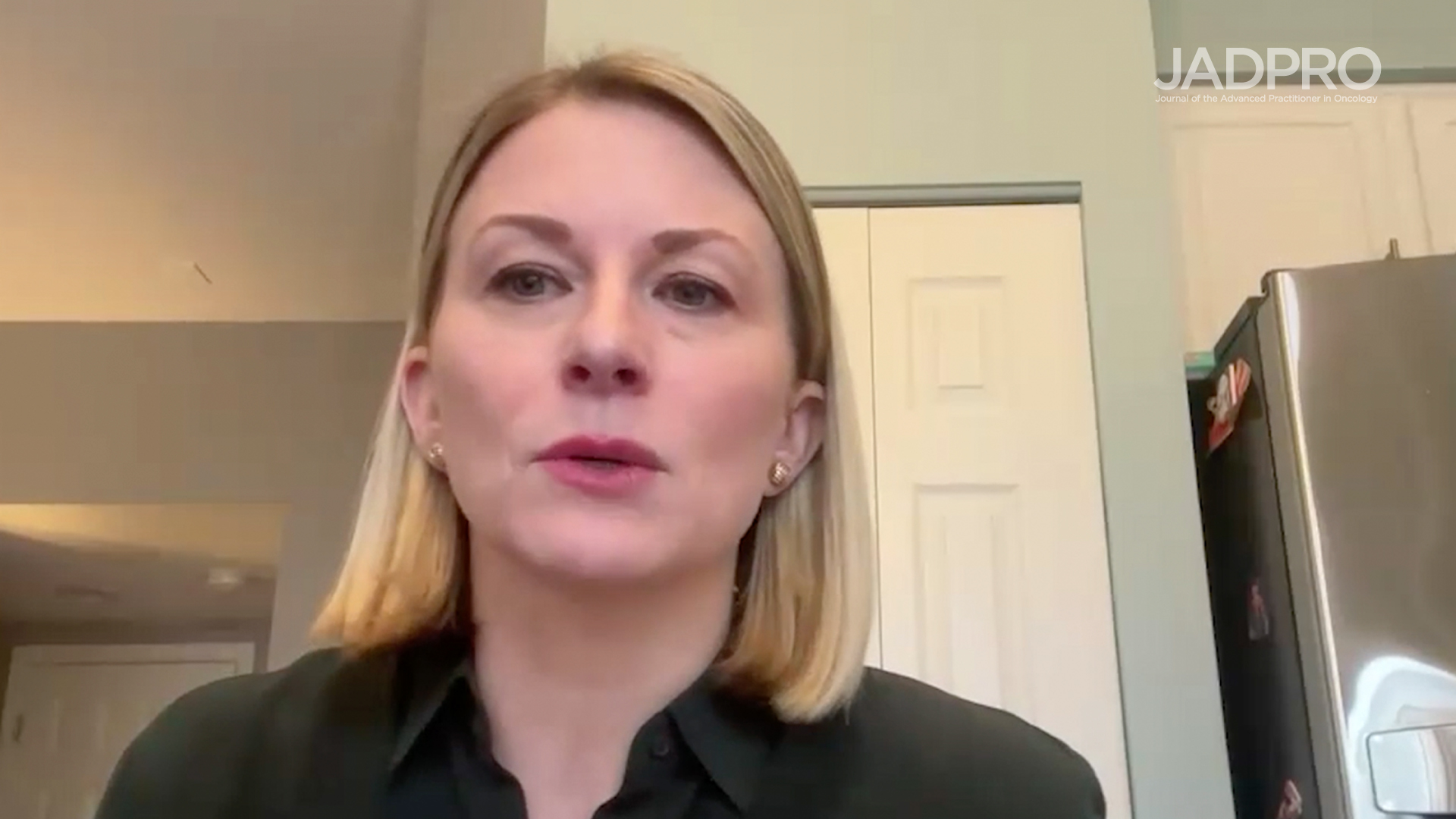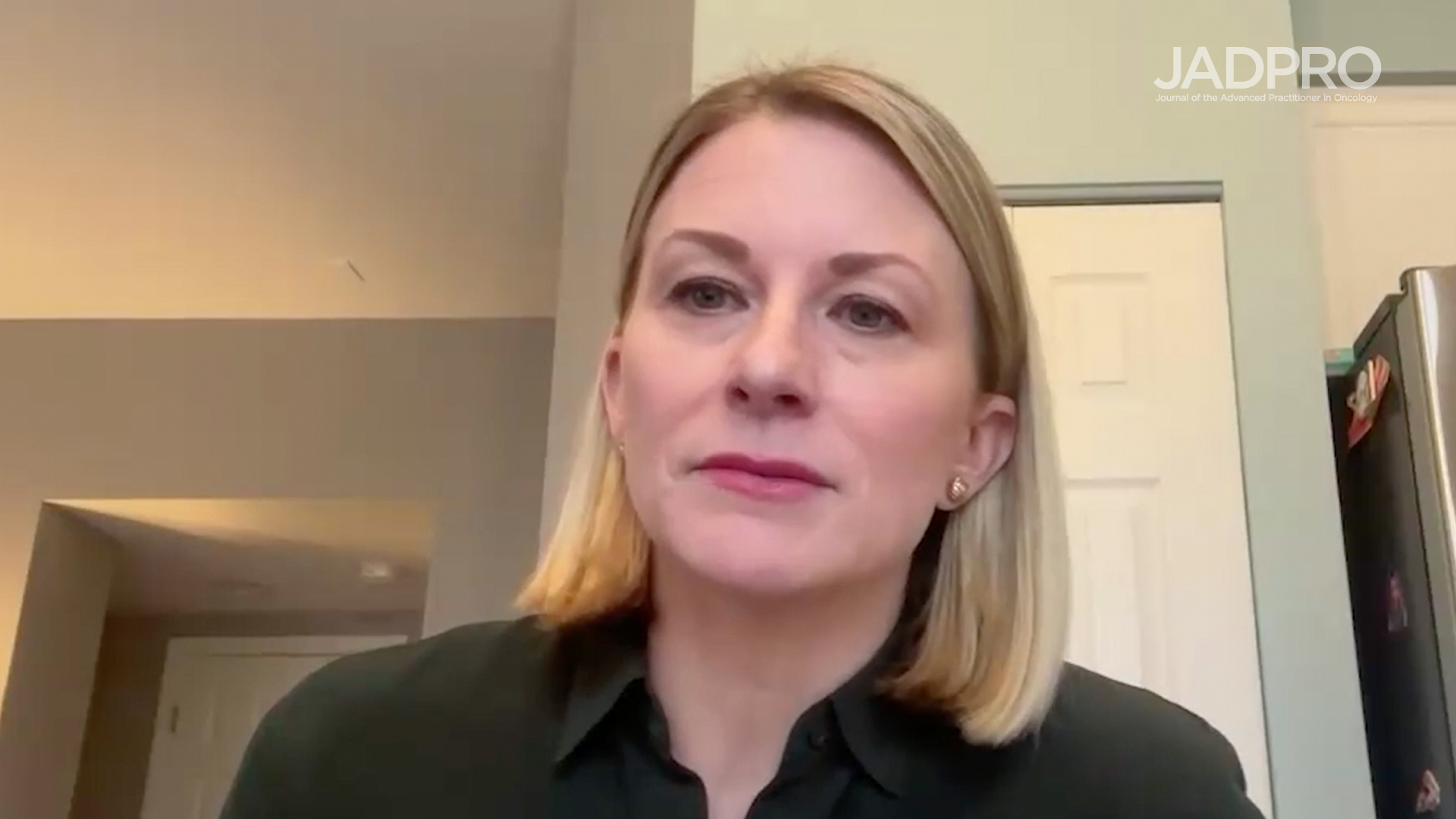Transcript
Hi there. I'm Lindsay Kalhagen. I am a physician assistant at Northwestern Medicine in Chicago in the Department of Benign Hematology. And this morning I'm going to be talking about one of the posters presented at ASH out of Spain, which is Real-World Outcomes of Momelotinib as an Alternative Therapy to Other JAK Inhibitors in Myelofibrosis Patients with Anemia. So again, as we all know, anemia with myelofibrosis is one of the biggest challenges, not only from a treatment perspective but also from a patient symptom standpoint. And we know that many of our current therapies can actually worsen anemia or results in the need for add-on therapies for anemia potential transfusion. And so we've had momelotinib added to our treatment options over the last year. And so this real-world outcomes of momelotinib therapy is really helpful as far as giving us some additional input with more numbers of patients on momelotinib to see what the impact was.
So this was myelofibrosis patients with splenomegaly or symptoms and anemia, and it was using momelotinib in patients who have both been on a JAK inhibitor in the past as well as some who are JAK inhibitor 90. It was 154 patients, which I think is a pretty good number from 74 different centers. And striking to me with this was that 77% of these patients had previously used an erythropoietin stimulating agent for anemia, 11% Danazol. So again, I think really just highlighting our patient's need for treatments for their anemia and looking for treatments other than transfusion for anemia. Twenty-six patients on momelotinib started it as a first-line therapy. The rest of the patients had been on a different therapy in the past, 91% of which had been on ruxolitinib. Also, not surprisingly, but I still think always significant and moving to see the data with numbers, 93.5% of patients had symptoms and 83% splenomegaly. So again, just really highlighting with myelofibrosis how symptomatic patients are.
Median hemoglobins were eight with over two-thirds transfusion dependent requiring around three units of blood per month, which again, very significant. Median follow-up was five months. And what we found was that over 75% of patients had improvement in symptoms and over 50% of patients improvement in splenomegaly. So significant to see with momelotinib that patients are not only, again having improvements in spleen, but also having improvements in symptoms. Again, regardless of whether or not they'd been on a JAK inhibitor in the past.
Hemoglobin changes, hemoglobin seen from 8 to about 8.9 and 52% of patients who were transfusion dependent became transfusion independent. And they actually had data on the follow-up of this at three months, six months, nine months, and 12 months with this response being pretty consistent. And I feel like as a clinician or talking with patients, we always think about, it's nice to be able to have some numbers to talk about this, that this important response is hopefully something that we're seeing for more than months. And for those that remain transfusion dependent, they still required lesser transfusion than they had initially.
Anemia improved similarly, and those again using momelotinib as a first line therapy or a second line therapy, so important to see those effects regardless of patient's past treatment. Most common adverse events, not surprising and kind of what we know from clinical trials as well as experience with patients, diarrhea, thrombocytopenia, hepatotoxicity, nausea, dizziness. Twenty-six of those requiring dose reductions, 10 requiring a temporary hold.
And then at last follow up, I think this is really important too, that in these over 150 patients that they followed, nearly 80% of them were still on treatment. So my takeaway from this is just seeing more real-world data with more numbers of patients on momelotinib. Again, so many of our patients with myelofibrosis having anemia, treatment worsening anemia, so to see these patients and over half of them were developing transfusion independence and really also seeing improvement in symptoms in splenomegaly is really nice to be able to have some of this information to talk with patients about the use of momelotinib, particularly in those with anemia, which again, we know is so difficult to treat with myelofibrosis.











